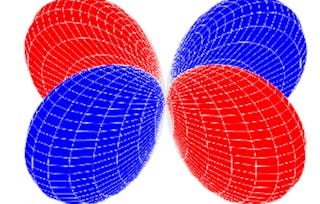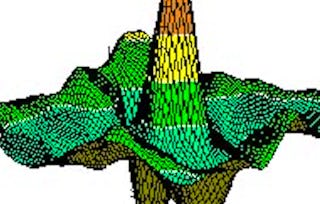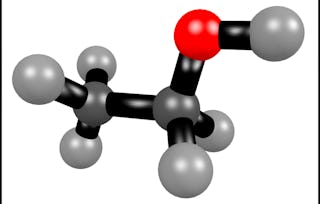This course can also be taken for academic credit as ECEA 5610, part of CU Boulder’s Master of Science in Electrical Engineering degree.

Foundations of Quantum Mechanics

Foundations of Quantum Mechanics
This course is part of Quantum Mechanics for Engineers Specialization

Instructor: Wounjhang Park
16,458 already enrolled
Included with
88 reviews
Recommended experience
What you'll learn
Understand the quantum mechanical meaning of wave-particle duality
Calculate probabilities and expectation values for physical observables
Use both Schrödinger and Heisenberg picture to solve for time evolution of quantum states
Describe fermions and bosons using multiparticle basis functions.
Skills you'll gain
Details to know

Add to your LinkedIn profile
6 assignments
See how employees at top companies are mastering in-demand skills

Build your subject-matter expertise
- Learn new concepts from industry experts
- Gain a foundational understanding of a subject or tool
- Develop job-relevant skills with hands-on projects
- Earn a shareable career certificate

There are 6 modules in this course
In this module we will introduce the course and the Quantum Mechanics for Engineers specialization. In addition, we will discuss wave-particle duality, time-independent Schrödinger equation. one-dimensional infinite potential well problem, properties of eigensolutions and Hilbert space.
What's included
6 videos6 readings1 assignment2 discussion prompts
In this module, we will solve several one-dimensional potential problems. They include finite potential well, harmonic oscillator, potential step and potential barrier. We will discuss the physical meaning of the solutions and highlight any non-classical behaviors these problems exhibit.
What's included
4 videos3 readings1 assignment1 discussion prompt
This module covers the theory of measurements in quantum mechanics. We start our discussion by introducing Stern-Gerlach experiment and the difficulty in interpreting the results classically. We then develop mathematical tools required to properly describe the results and then apply them to the interpretation of Stern-Gerlach experiments.
What's included
5 videos3 readings1 assignment1 peer review1 discussion prompt
In this module we expand upon the discussion from the previous module and introduces Hamiltonian, position and momentum operators and the uncertainty principle that governs the relationship between the operators. We also discuss the general principle of change of basis and the specific example of position and momentum representations.
What's included
4 videos3 readings1 assignment1 peer review
This module discusses how to describe the time-evolution of a quantum system. There are two equivalent methods, Schrödinger and Heisenberg pictures, where the time evolution can be obtained by the time-dependent Schrödinger equation and Heisenberg equation of motion, respectively. We will discuss the specific example of harmonic oscillator and finally introduce the particle current.
What's included
5 videos3 readings1 assignment1 peer review
This module discusses how to deal with ensembles. We will first discuss the difference between pure and mixed states and how to use the density matrix to describes them. We then discuss indistinguishable particles and exchange interaction, which eventually lead us to the thermal distribution functions.
What's included
5 videos3 readings1 assignment1 discussion prompt
Earn a career certificate
Add this credential to your LinkedIn profile, resume, or CV. Share it on social media and in your performance review.
Build toward a degree
This course is part of the following degree program(s) offered by University of Colorado Boulder. If you are admitted and enroll, your completed coursework may count toward your degree learning and your progress can transfer with you.¹
Instructor

Offered by
Explore more from Electrical Engineering
 Status: Free Trial
Status: Free Trial Status: Free Trial
Status: Free TrialUniversity of Colorado Boulder
 Status: Free Trial
Status: Free TrialUniversity of Colorado Boulder
 Status: Free Trial
Status: Free TrialUniversity of Colorado Boulder
Why people choose Coursera for their career

Felipe M.

Jennifer J.

Larry W.

Chaitanya A.
Learner reviews
- 5 stars
69.31%
- 4 stars
14.77%
- 3 stars
12.50%
- 2 stars
1.13%
- 1 star
2.27%
Showing 3 of 88
Reviewed on Sep 25, 2023
Lot of things learnt from this course ..Mindblowing experience
Reviewed on Jan 3, 2023
The course is organized around precise concepts with full mathematical details. Difficult, but essential and serious.
Reviewed on Sep 23, 2023
The course was well designed and is highly recommended to anyone looking to pursue nuclear physics and quantum studies in general

Open new doors with Coursera Plus
Unlimited access to 10,000+ world-class courses, hands-on projects, and job-ready certificate programs - all included in your subscription
Advance your career with an online degree
Earn a degree from world-class universities - 100% online
Join over 3,400 global companies that choose Coursera for Business
Upskill your employees to excel in the digital economy
Frequently asked questions
To access the course materials, assignments and to earn a Certificate, you will need to purchase the Certificate experience when you enroll in a course. You can try a Free Trial instead, or apply for Financial Aid. The course may offer 'Full Course, No Certificate' instead. This option lets you see all course materials, submit required assessments, and get a final grade. This also means that you will not be able to purchase a Certificate experience.
When you enroll in the course, you get access to all of the courses in the Specialization, and you earn a certificate when you complete the work. Your electronic Certificate will be added to your Accomplishments page - from there, you can print your Certificate or add it to your LinkedIn profile.
Yes. In select learning programs, you can apply for financial aid or a scholarship if you can’t afford the enrollment fee. If fin aid or scholarship is available for your learning program selection, you’ll find a link to apply on the description page.
More questions
Financial aid available,

